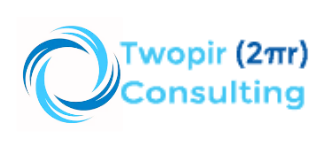Marketing Cloud Salesforce CDP
A data cloud for marketing refers to a centralized platform that allows marketers to store, manage, and analyze large volumes of data from various sources in real-time. This type of cloud-based solution provides a scalable and flexible infrastructure to handle diverse data sets, including customer information, campaign performance data, and other relevant marketing metrics.
Salesforce CDP: What Are the Benefits?
- CDPs gather all customer data in one place, thereby making organizations smarter and customer-data-centric when it comes to engaging their customers and the next best actions to be taken. This has wide-ranging, positive impacts.
- CDPs enable an organization to empower marketing teams to promote and sell to the right people, and the right offer, at the right time.
- This typically leads to better marketing KPIs such as higher conversion rates, better ROI from marketing spending, and an increase in revenue from untapped marketing and sales opportunities.
- Besides enhancing existing marketing campaigns, it also enables organizations to discover new, profitable audience segments, to broaden their reach with targeted actions.
- Greater segmentation capabilities also allow companies to gain campaign performance insights and how to optimize for better results, as it is the base for purposeful reporting.
- Last but not least, there are a range of further benefits and applications, for instance centralizing customer data to manage consent and comply with important regulations such as Europe’s GDPR.

How Does the Salesforce CDP Work?
- In short, CDPs capture first-party customer data (transactional, behavioural, demographic, historical, etc.) from offline and online data sources to build a complete customer profile.
- Depending on how you look at it, today’s CDP industry was born in 2016 when marketers recognized the limitations of software like Data Management Platforms (DMPs) and data lakes that leverage anonymized data for advertising.
- These marketers also wanted to have known data about people, leads, and customers.
- CDPs have the advantage that they mostly focus on first-party data, which is owned by the companies themselves. With anonymized data (often third-party data) receiving increasing scrutiny from both regulators and consumers, the legislation changes around collecting such data.

What You Can Do With Data Cloud For Marketing?

Connect data from any source:-
-Native Data Connectors
Connect first-party customer data using prebuilt integrations. Bring together data from across your entire business, including all Salesforce products, web and mobile applications, and cloud storage solutions like Amazon, Azure, Google, and other external systems via MuleSoft. Eliminate data pipeline management and move faster with native connectors that help you bring together all of your data across the customer relationship from inside and outside of Salesforce.
-Zero-ETL Data Sharing and Federation
-Customer Graph
-Identity Resolution

Engage smarter with dynamic segments:-
-Marketer-Friendly Segmentation
Simplify segmentation and launch campaigns faster with an efficient, drag-and-drop interface. Access all of your data in one place — including customer profile information and AI-powered insights, like propensity and lifetime value scores — to define high-value audience segments for any use case. And coming soon, experience the next evolution of ease of use, with AI-powered segment creation. Using natural language prompts, simply describe your audience’s needs and let Data Cloud and generative AI do the rest.
-Lookalike Modeling
-Marketing Journeys and CRM Flows
-First-party data Advertising and Insights

Maximize relevance with automated insights:-
-Calculated Insights
Empower your team with actionable customer insights using an accessible, low-code process. Use out-of-the-box insights, or create net-new metrics, calculations, or statistical functions, using your unified customer data within Data Cloud. Embed these new insights into your segmentation and activation strategies for more relevant and timely personalization.
-Bring Your Model
-Advanced Customer and Campaign Insights

Data Cloud for Marketing Pricing:
Data Cloud for Marketing unifies real-time data from marketing, sales, commerce, service, loyalty — and beyond — to create a unified profile for every customer. It gives marketers a single source of truth for every customer to power real-time automation, intelligence, and experiences that feel personal and seamless across the full customer journey.
Data Cloud pricing is consumption-based, meaning you pay only for the services you use. Consumption is paid for using Data Services Credits and Segmentation and Activation Credits.
HOW CAN WE HELP?
- Streamlined integration with native data connectors for seamless data unification.
- Enhanced segmentation capabilities with AI-powered insights for quick campaign deployment.
- Personalized marketing journeys through lookalike modeling and CRM integration.
- Actionable customer insights using calculated metrics and low-code processes.
- Consumption-based pricing model for cost-effective access to unified customer data and automation.
Result:
- Increased efficiency in data unification and analysis, leading to more targeted marketing efforts.
- Improved campaign performance and ROI through personalized marketing strategies.
- Enhanced customer engagement and satisfaction with tailored marketing journeys.
- Empowered marketing teams with actionable insights for informed decision-making.
- Cost savings and optimized expenditure with a consumption-based pricing model.
Conclusion:
Data Cloud for Marketing revolutionizes strategies, offering unified insights, agile scalability, enhanced collaboration, and robust security. It’s a vital investment for businesses navigating the dynamic landscape, enabling data-driven success in the digital era.
Contact Us
We would love to hear from you
Please feel free to send us a message via the form
